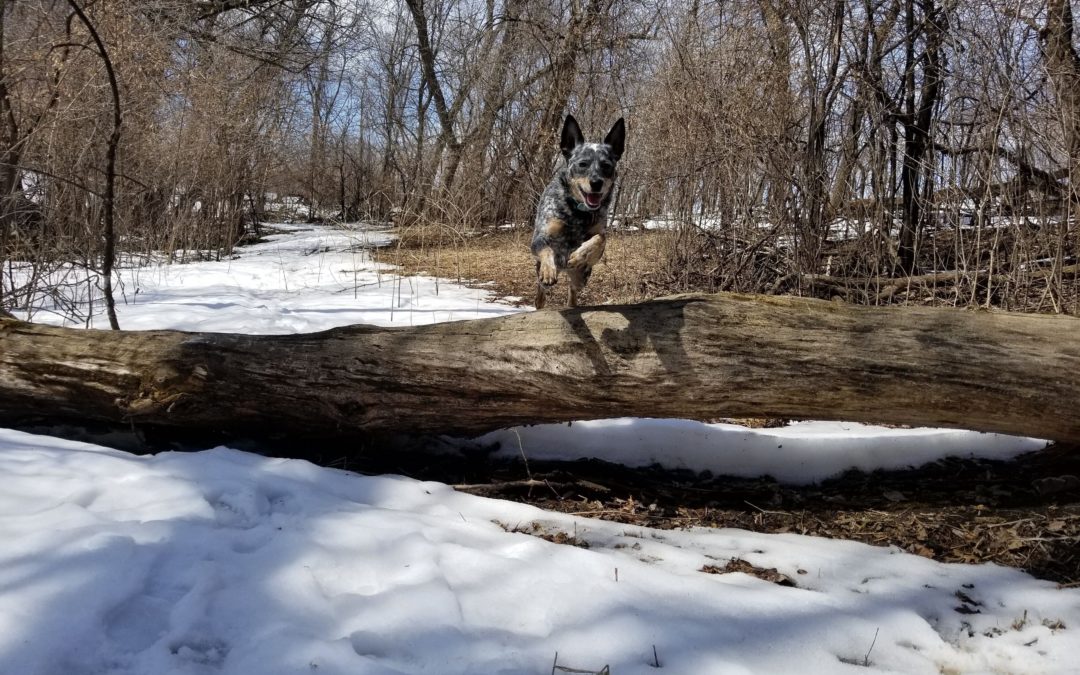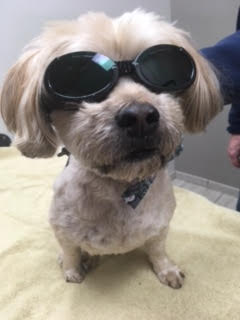Common Forms of Dental Disease in Cats and Dogs
Dental disease is one of the most common diagnoses that we make in veterinary medicine. While they don’t usually get cavities like humans do, cats and dogs can be affected by a wide range of other tooth concerns:
- Periodontal disease: By far the most common type of disease we see in animals, periodontal disease is the loss of the structures around the teeth due to infection. Teeth are normally held in place by bone and strong ligaments, but the bacteria present in tartar cause inflammation and infection that damages those structures. As periodontal disease worsens, teeth become loose, and eventually become so damaged that they fall out. The best way to prevent periodontal disease and the resulting loss of teeth is to practice good tartar control. Brushing teeth, encouraging chewing, and having routine professional dental cleanings under anesthesia are all excellent ways to prevent periodontal disease.
- Fractured teeth: Animals aren’t always gentle with their teeth. We frequently see patients who fracture their teeth chewing items that are too hard, such as antlers and marrow bones. Veterinary dentists advise only allowing pets to chew on objects soft enough to make an indent in with your thumbnail. We also see pets fracture teeth chewing on the wire bars of kennel doors. If your pet is so distressed being kept inside a kennel that they chew on the wire door, we strongly recommend finding alternative confinement options while you work on crate training. It’s not fun to have four fractured canine teeth that need to be extracted!
- Tooth resorption: Extremely common in cats and less common in dogs, tooth resorption is a disease in which the body begins to erode the teeth and replace the dental tissues with bone. Depending on where the erosions form, tooth resorption can be benign or can be very painful. If we find a painful resorptive lesion on a physical exam, we recommend extraction of those teeth to relieve pain.
- Malocclusion: Teeth that are not aligned normally are common in dogs and cats, and especially so in breeds with unusually-shaped skulls, such as pugs and French bulldogs. Sometimes, malocclusions don’t need any correction, but in some patients, misaligned teeth chronically rub against each other, leading to painful exposure of the sensitive structures inside the teeth. Misaligned teeth can also accidentally contact the hard palate or the gingiva, causing painful chronic sores to form. We can extract teeth that are causing damage to other parts of the mouth, relieving a source of chronic pain.
When your pet has a dental procedure, the veterinarian and veterinary technicians who perform their dental exam are searching for all of these types of dental disease, and more! We love being able to relieve pain and infection, and we also love keeping teeth healthy too. A healthy mouth makes for a healthy pet.
A Few Of Our Favorite (Dental) Things
Professional dental cleanings are an important part of your pet’s dental care regimen, but the majority of their dental care takes place at home. What sorts of things should you have on hand to take care of your pet’s teeth? These are our favorites:
For prevention of tartar, nothing beats tooth brushing once daily with a soft-bristled toothbrush and pet-safe toothpaste like C.E.T. Enzymatic Toothpastes. Pet toothpaste has to be fluoride-free, and many pets are more tolerant of brushing if it comes with a toothpaste flavored with tasty seafood, beef, or chicken flavoring.
For pets who don’t yet tolerate toothbrushing, C.E.T. also makes enzymatic chews for dogs and treats for cats. OraVet Chews are highly digestible chews that reduce tartar buildup and control halitosis, and are designed to be given once daily.
Some pets aren’t motivated to chew. For those individuals, a dental-specific diet can reduce how frequently your pet needs a professional cleaning. Royal Canin Dental Diet and Hills t/d are both great options. These diets are especially beneficial for pets prone to periodontal disease.
Water additives are popular over-the-counter options for home dental care. Many of these products are not well-researched, but there are a few that are endorsed by the Veterinary Oral Health Council. HealthyMouth and ProDen PlaqueOff both carry the VOHC seal of approval.
If you aren’t sure whether something is a reliable dental care product for your pet, visit the Veterinary Oral Health Council for a comprehensive list of evidence-based products. Happy brushing!
Laser Therapy For Pets
Did you know that St. Francis offers laser therapy sessions for pets? Our Companion Therapy Laser allows us to provide treatments that can reduce inflammation, enhance wound healing, and relieve pain. Laser therapy uses specific wavelengths of light to induce a therapeutic effect in the body. Laser therapy increases circulation to an area, leading to increased oxygen and nutrient delivery. This creates an optimum environment for healing including a reduction in pain, stiffness, muscle fatigue, swelling, and inflammation. At the cellular level, laser light waves increase metabolic activity, increasing transport of nutrients across cell membranes and increasing production of cellular energy or ATP. This leads to an acceleration of tissue healing in the area. Laser therapy often reduces how much medication a pet needs to take to manage their pain.
Laser therapy can be beneficial for acute injuries, chronic pain relief, and post-operatively to enhance healing. If you are interested in learning more about laser therapy for your pet, call us at 651-645-2808.
COVID-19 Updates
We returned to curbside-only care last month in response to the rising case numbers of COVID-19 in our area. While we are encouraged by recent downward trends, the numbers are still high enough that we need to continue to exercise caution. Our goal is to keep our staff safe and healthy so that we can continue to be here to provide care for your pets. We miss you all very much, and so appreciate all the support you’ve given us throughout this time! We look forward to having you back inside St. Francis as soon as it is safe to do so. Watch our website and Facebook page closely for updates to our COVID-19 safety protocols.


